Are quartz countertops right for your home? We examine the pros and cons
From costs to installation, we take a deep dive into quartz countertops

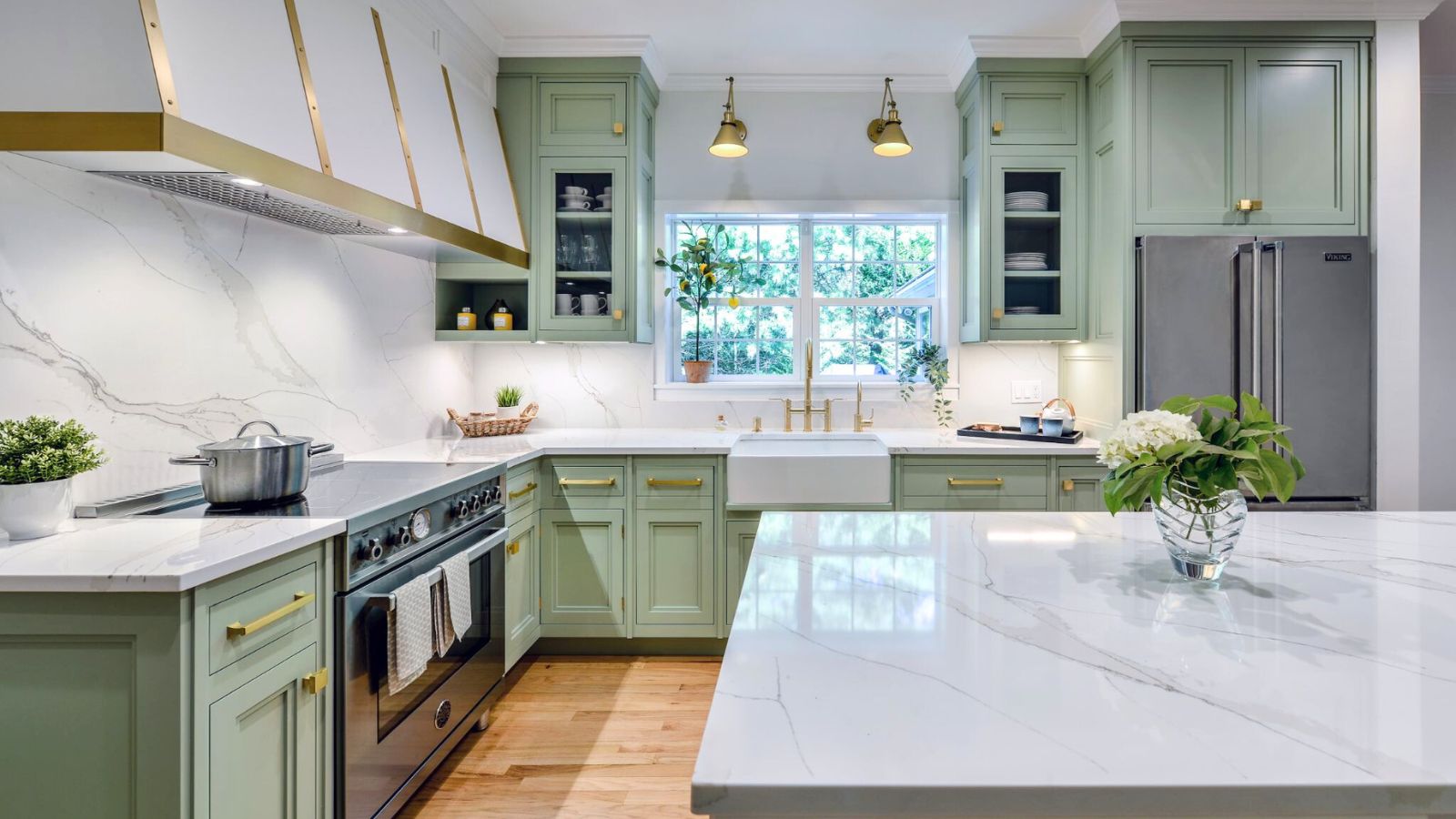
Design expertise in your inbox – from inspiring decorating ideas and beautiful celebrity homes to practical gardening advice and shopping round-ups.
You are now subscribed
Your newsletter sign-up was successful
Want to add more newsletters?

Twice a week
Homes&Gardens
The ultimate interior design resource from the world's leading experts - discover inspiring decorating ideas, color scheming know-how, garden inspiration and shopping expertise.

Once a week
In The Loop from Next In Design
Members of the Next in Design Circle will receive In the Loop, our weekly email filled with trade news, names to know and spotlight moments. Together we’re building a brighter design future.

Twice a week
Cucina
Whether you’re passionate about hosting exquisite dinners, experimenting with culinary trends, or perfecting your kitchen's design with timeless elegance and innovative functionality, this newsletter is here to inspire
Engineered from one of the hardest minerals on earth, quartz countertops can lend a touch of elegance and practicality to kitchens and bathroom schemes alike. These smooth and seamless surfaces marry the robustness of stone with the finesse of modern technology.
But when it comes to choosing the best material for countertops how does quartz compare to other popular choices, such as granite or marble?
Whether you're renovating your home or simply remodeling a kitchen, this guide aims to help you decide if quartz countertops are right for your space and design aspirations.
Are quartz countertops right for your home?
Quartz countertops are typically composed of about 90% ground quartz, a natural hard mineral, and 10% resins and pigments. This blend is poured into molds and formed into slabs under intense heat and pressure, resulting in a strong and compact material.
But how do you decide if this versatile material is right for your home countertops? Let's take a deep dive into the costs and factors you should consider:
Aesthetics & Versatility
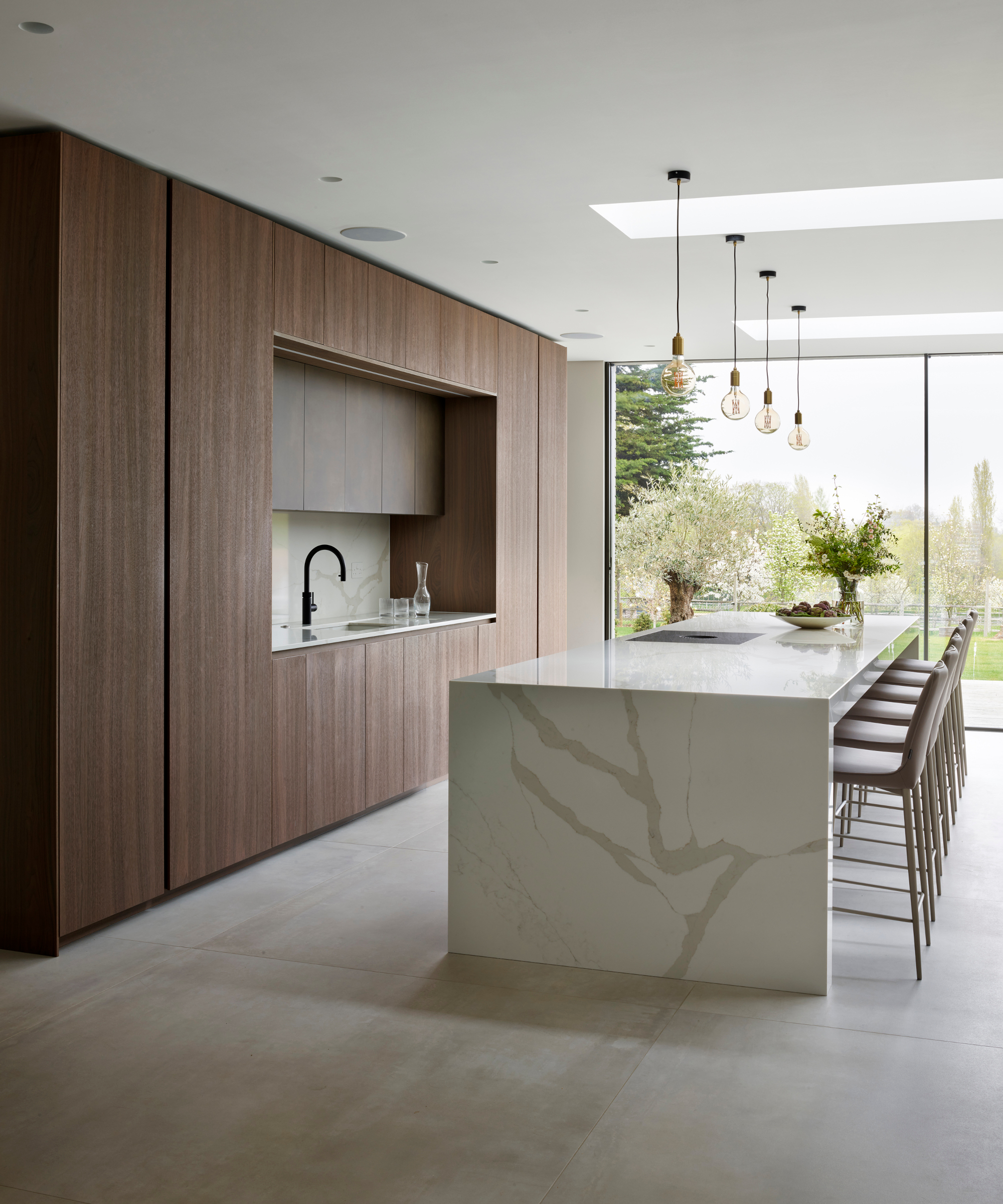
One of the standout features of quartz is its aesthetic versatility. While it can mimic the look of natural stones like granite or marble, it also offers a variety of colors and designs not found in natural stone. This is due to the pigments added during manufacturing, ranging from subtle, earthy tones to bold, contemporary hues. The controlled manufacturing process also allows various finishes – from high gloss to matte – catering to different design preferences.
'The quality of quartz finishes has improved immensely over the years, giving homeowners and designers more options than ever,' notes Bob Bakes, Co-Founder and Head of Design at Bakes and Kropp.
Design expertise in your inbox – from inspiring decorating ideas and beautiful celebrity homes to practical gardening advice and shopping round-ups.
‘Quartz has a great modern appeal for kitchen countertops,' agrees Jennifer Verruto, Founder and CEO of Blythe Interiors. 'Because the material is man-made, it has a wide range of veining looks. Whether it’s no veining or high veining, there are options to suit an array of styles.’

Jennifer Verruto is Founder and CEO of Blythe Interiors. Blythe Interiors has of a team in Spokane, WA, and a San Diego Design studio/showroom as well as an online shop.
Sustainability
In recent years, there has been a growing focus on sustainability in the manufacturing of quartz countertops. Many brands now incorporate recycled materials, such as reclaimed quartz or glass, into their countertops. This approach reduces waste and makes quartz an eco-friendly option compared to traditional materials. Similarly, the durability of quartz means it doesn’t need to be replaced as often as other materials, further reducing its environmental footprint.
How much are quartz countertops?
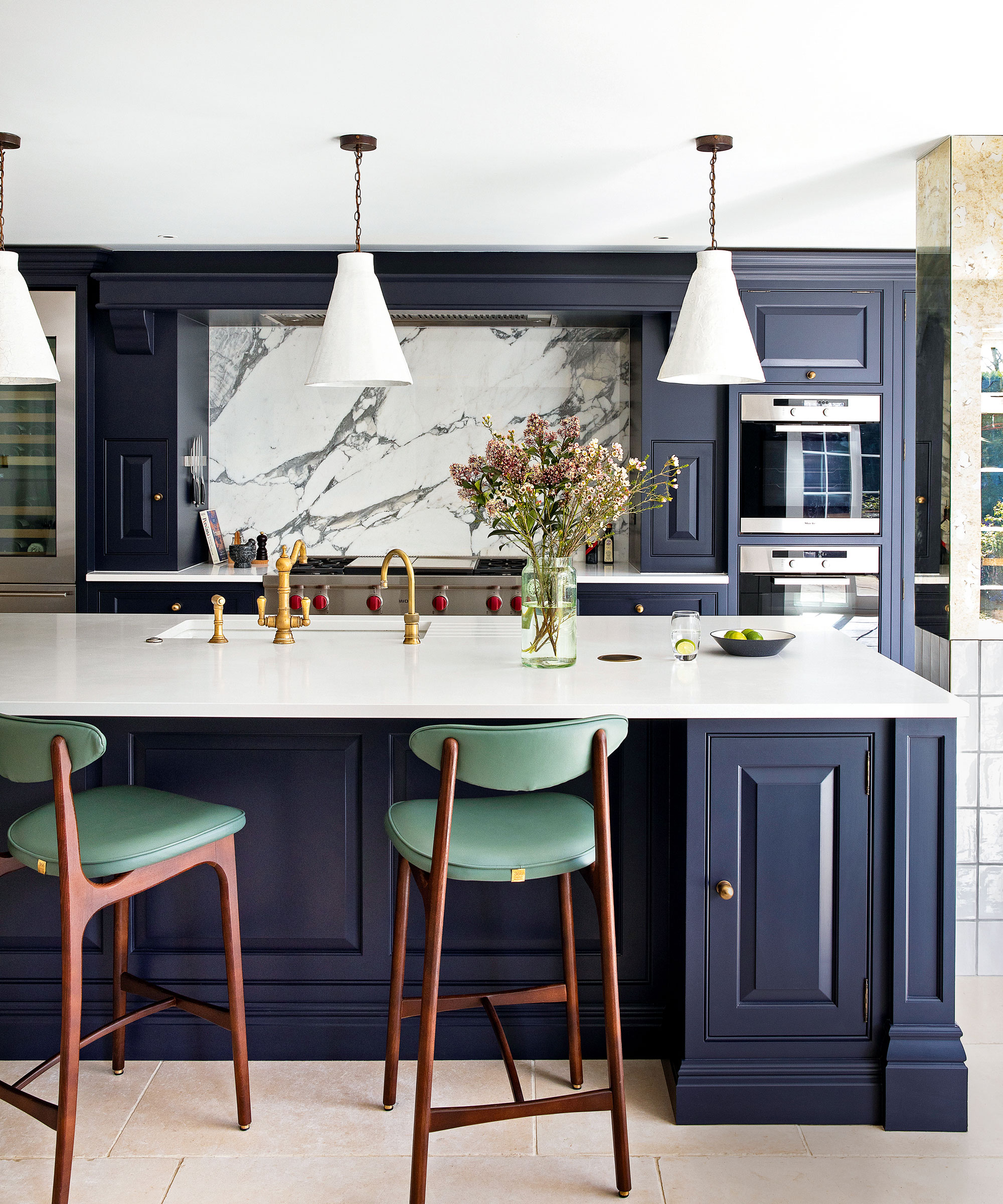
‘Generally, quartz is a moderately-priced material that can offer a great cost-effective solution – between $100 - $200 dollars per square foot, including installation,’ says Bob Bakes. ‘Of course, a more expensive slab will deliver richer color and texture.’
Its non-porous nature means you won't have to fork out for annual sealing, and quartz countertops can even positively affect your home's resale value, as their timeless appeal is an attractive feature for potential buyers.

Bob Bakes is head of design at Bakes & Kropp, and calls on his years of experience as owner and operator of a kitchen design studio in central London and his well-known former brand, Bakes & Company, based in Sag Harbor, NY. Bob has developed an expansive knowledge of the interior design process and professional project management skills throughout his accomplished career.
Conversely, quartz countertops require a higher initial investment than alternatives, such as butcher blocks or tile countertops. Due to their weight and the precision needed for a flawless fit, they also require expert installation, which can be costly.
While quartz is resilient to scratches, it can be sensitive to high heat. To maintain your countertop's integrity, you may need protective accessories like trivets or heat pads, which are small but add to the overall cost considerations.
Match Pewter Round Trivet
$288 from Saks Fifth Avenue
This beautiful pewter trivet has been handcrafted in Match's Italian workshop to replicate the elegance of 17th-century metalware.
Cleaning Quartz
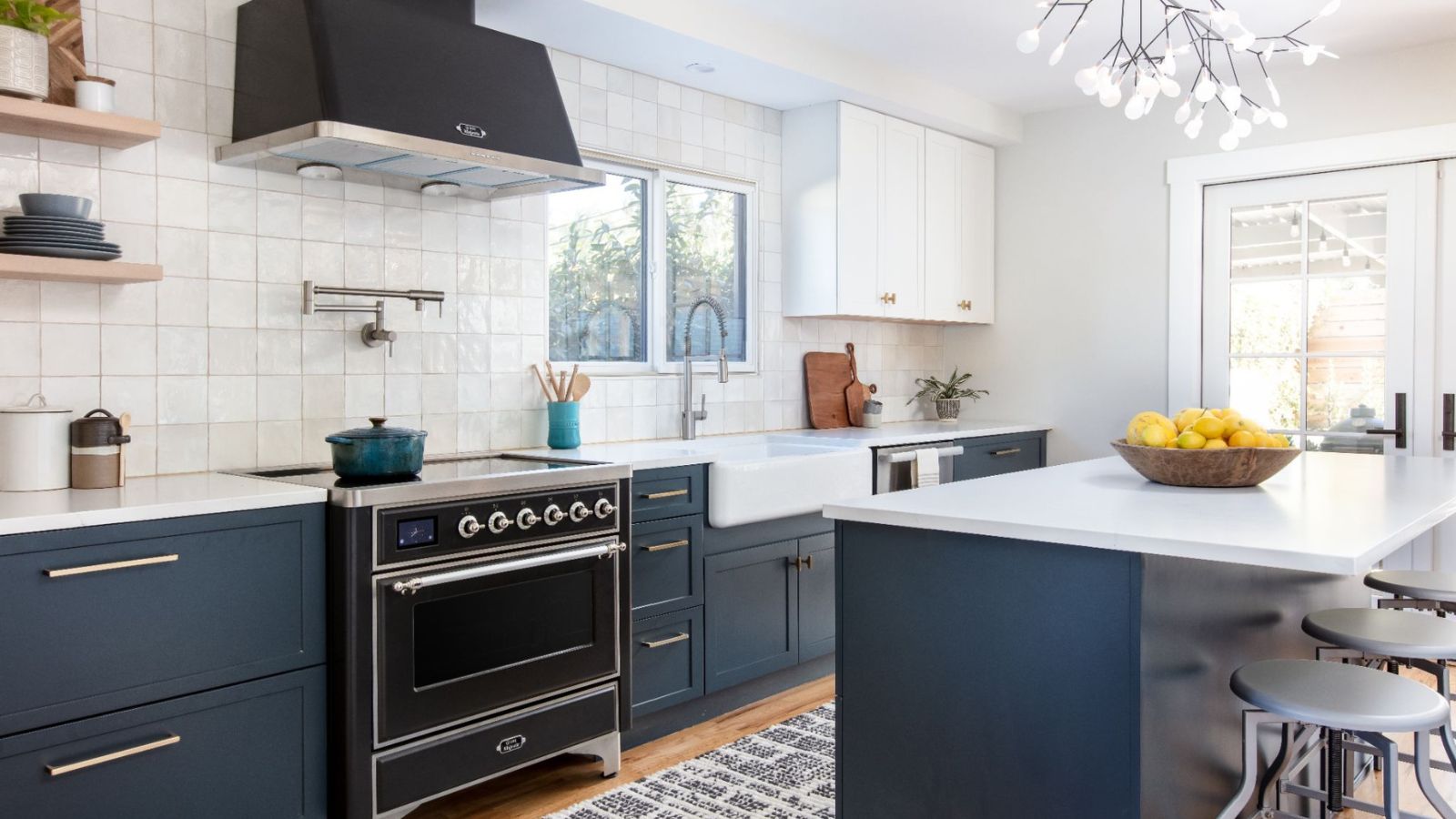
‘Quartz is highly durable and resistant to stains and scratches, making it a great option for your countertops,’ says Jennifer Verruto, Interior Designer. Maintaining the pristine appearance of your quartz countertops is, therefore, straightforward.
To clean quartz countertops, a simple solution of water and mild dish soap suffices, but for a deeper clean, consider using white vinegar diluted with water. Cleaning with vinegar can help sanitize the surface without harming the material.
For tougher stains, or when you're aiming for a streak-free shine, Weiman's Quartz Countertop Cleaner from Walmart is an excellent choice. Specifically designed for quartz, it effectively cleans without damaging the surface, making it a go-to product for keeping your countertops looking their best.
The Installation Process
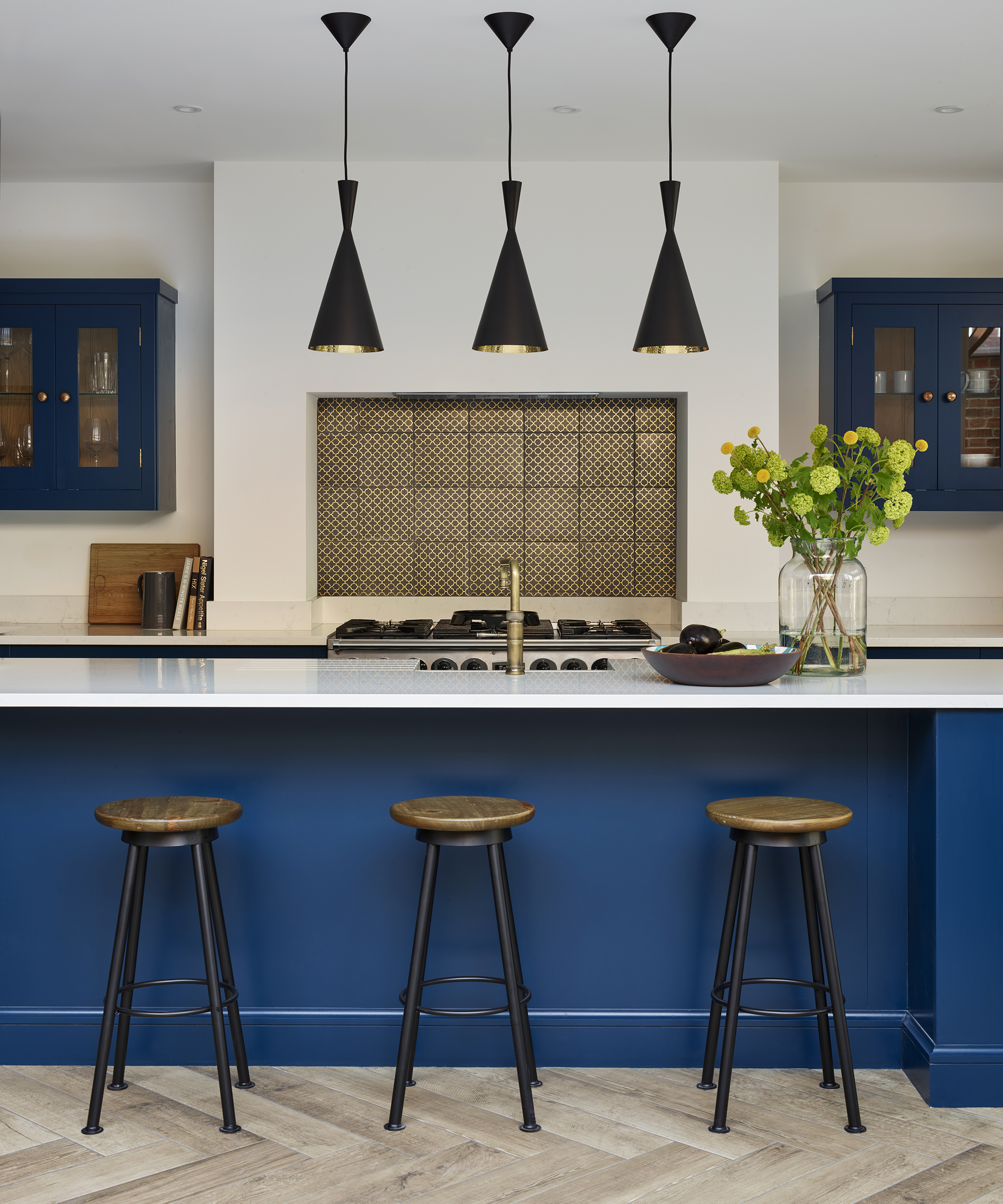
Installing quartz countertops requires precision and expertise due to the material's weight and the need for exact measurements. The process usually begins with a professional assessment of your bathroom or kitchen layout to ensure accurate dimensions. Specialists will consider the placement of sinks, faucets, and appliances to customize the quartz slabs to fit perfectly.
During installation, the goal is to minimize the visibility of seams, ensuring a seamless look across the surface. Installers will also ensure that the countertops are perfectly level and securely mounted to the cabinetry below, preventing any future issues with cracking or movement.
As this is a meticulous process that is difficult to do on a DIY basis, we recommend seeking qualified professionals to install your quartz countertops.
Countertop Comparison Guide
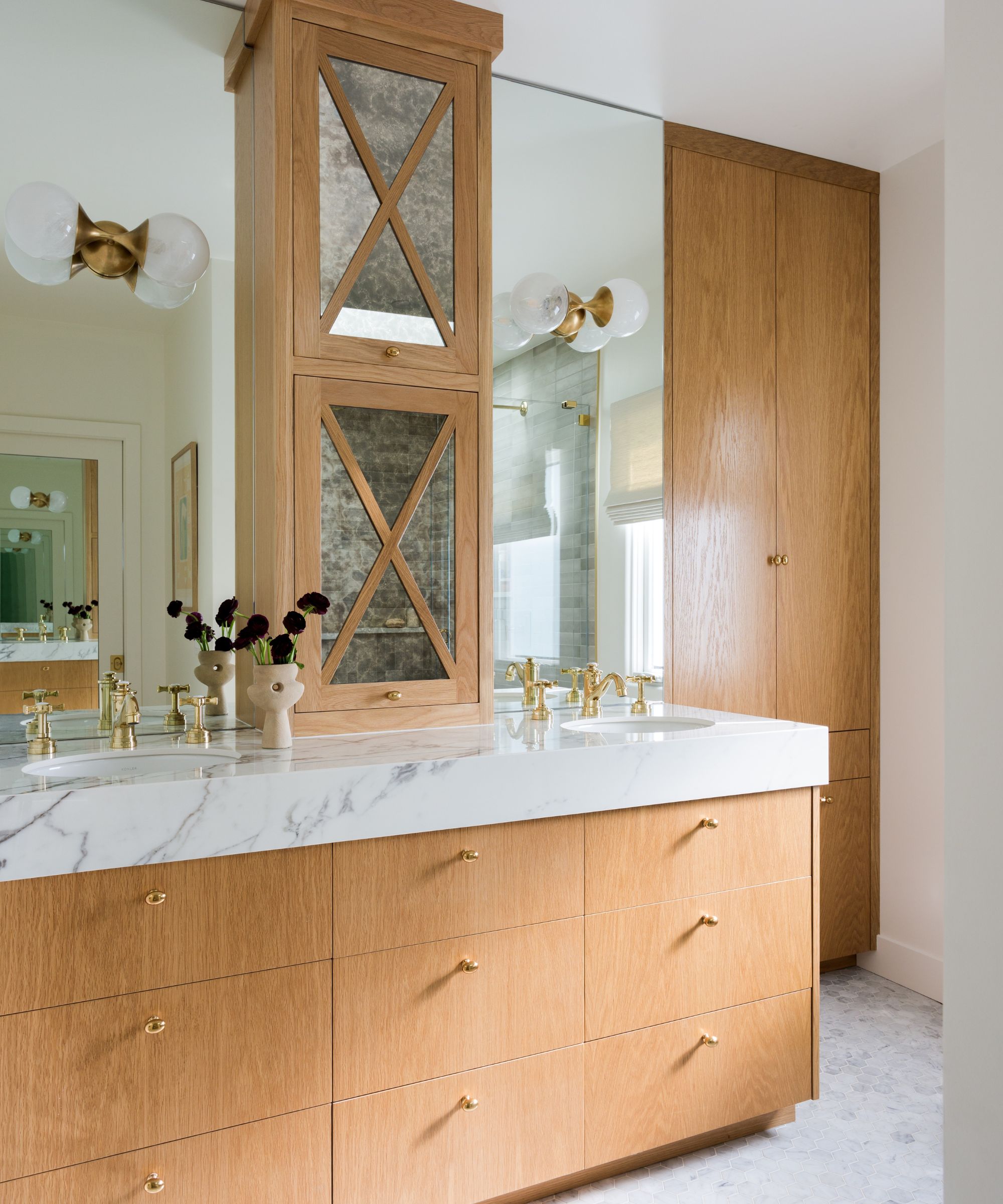
There's no doubt that quartz is a versatile and durable material coming in at a mid-high range price point. But how does it compare to other popular kitchen and bathroom countertop materials?
Quartz vs. Granite Countertops: Unlike quartz, granite is porous and requires periodic sealing to prevent staining, which can add to long-term costs. While both materials are durable, quartz is more consistent in appearance and offers a broader range of colors and patterns due to its engineered nature.
Quartz vs. Marble Countertops: Marble countertops are synonymous with luxury and will likely never go out of style. However, marble is more porous than quartz, making it more susceptible to staining and etching from acidic substances. Quartz can mimic the look of marble without the same maintenance requirements, making it a practical choice for those who love the look of marble but want easier upkeep.
Quartz vs. Laminate Countertops: Laminate countertops are a budget-friendly option, offering a wide variety of colors and patterns. However, laminate is more prone to scratching and heat damage and is not as durable as quartz. While laminate can mimic the appearance of stone or wood, it lacks the depth and texture of quartz, which is engineered to have a more stone-like feel and appearance.
Quartz vs. Butcher Block Countertops: Wooden countertops can add warmth and natural beauty to a modern farmhouse kitchen. But unlike quartz, they require regular maintenance, including oiling and sanding, to prevent damage from water and heat. Some quartz countertops can be designed to replicate the look of wood, though the texture and patina of these surfaces will inevitably vary.
There are many reasons to consider installing quartz countertops in your kitchen or bathroom. These versatile surfaces are unlikely to be considered outdated anytime soon and are decidedly low-maintenance. These considerations, coupled with its robust quality, make quartz a good material choice for homeowners seeking style and substance.

Gabriella is a freelance contributor for Homes & Gardens. She is a DIY enthusiast and a lover of all things interior design, often found antiquing or browsing the aisles of her local hardware store. She has a particular passion for historic buildings and is in the process of renovating a Victorian coachhouse in the countryside.
For much of the past decade, Gabriella has worked as a freelance writer, crafting copy for national publications and renowned homeware brands. Most recently, she worked for Homebuilding & Renovating Magazine and is the former Head of Solved at Homes & Gardens, focusing on case studies for the magazine and website, as well as writing features about issues surrounding historic and listed building projects.
